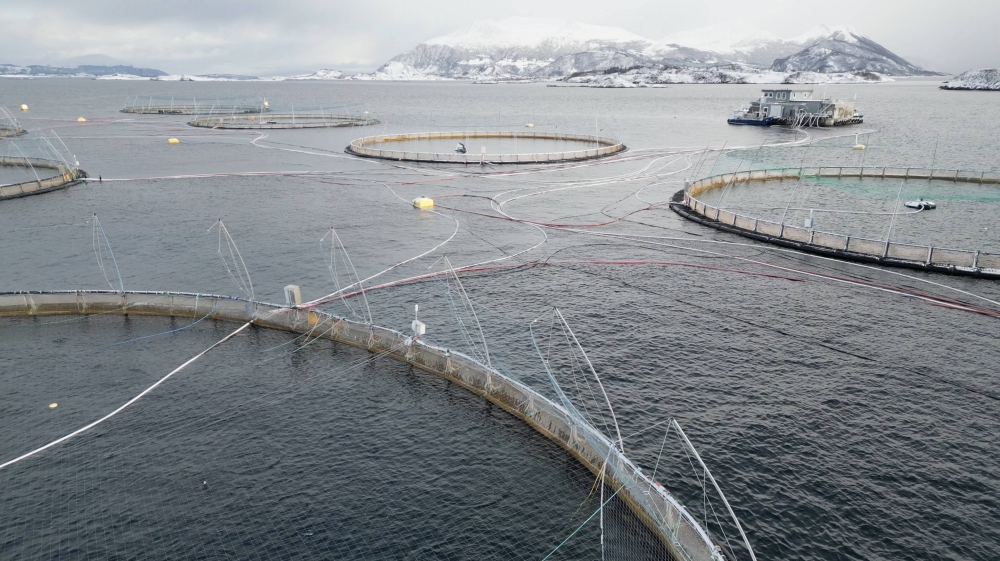Just go eat plant-based all together, so we won’t have these problems that endanger the existence of life on our planet. Including humans.
It’s so simple: almost as simple as stop burning oil and using plastic packaging and invading other countries and using slave labour…
Thing is, life will find a way to survive despite our best efforts. We’ve seen mass extinctions before. Whether the human species survives is another matter.
We’ve made our bed, on that I agree, but I cant help but feel that it would be nice if we didn’t take everything else down with us.
Plants? Those cost more than beef.
This. How can a vegan meat alternative cost more than real meat. I’d buy it immediately but as a consumer I don’t want to be screwed over.
Eating plants isn’t more expensive than eating meat, just eating plant-based attempts at mimicking meat.
In the EU the answer would be that we’re subsidising cattle farmers for enormous amounts of money
Some of it is probably limited scale.
I think a more-interesting metric than price in store is what their marginal cost of production is relative to the marginal cost of production of real meat. That’ll cut out fixed costs like R&D that’ll be more-prominent at limited scale.
That won’t stop all the other people eating animal products. You can’t solve systemic problems with individual action.
It won’t, but at least you’re not part of the problem anymore. You might inspire other people to. And every person who goes plantbased makes it more politically viable to enact policies to encourage plant based over the most destructive other foods. Try to avoid discouraging people who try to do the right thing, help them make a bigger impact instead.
Just because there’s a demand for something doesn’t mean you have to deliver. There needs to be environmental protections in place to avoid overfishing. The article points out a ban on trawling as a possible step, but spends too much time pointing at the aquaculture industry.
The oceans are fucked, and we need to start taking conservation seriously.
The Norwegian salmon industry has cut fish meal and oil to around 30% of feed, down from 90% in the 1990s. Further reductions have remained elusive, though, as farmed salmon still need omega-3 fats and acids mainly found in marine life.
Hmm. So omega-3 fatty acids are the bound on other food sources?
https://www.ncbi.nlm.nih.gov/pmc/articles/PMC10662050/
Microalgae are unicellular species containing eukaryotes and prokaryotes (Wen and Chen, 2003). The smallest microalgae are only a few microns, while the larger ones can reach a hundred microns and are widely distributed in the ocean and freshwater (Ryckebosch et al., 2012). As the only creature that can de novo synthesize omega-3 fatty acids efficiently in nature, historically, humans have commercially used microalgae for a long time as food, fodder, and a chemical of high value.
Sounds like it’s generated by algae. Farm omega-3 fatty acids too? Maybe genetically-engineer to try to increase yields?
googles
Sounds like people are already banging on it.
https://www.ncbi.nlm.nih.gov/pmc/articles/PMC10102661/
Moreover, the development of sequencing, genetic engineering and bioinformatics technology has significantly contributed to the synthesis of omega-3 PUFA. It has provided essential information for optimizing the enzyme system for algae to synthesize high-value oil (Yang F et al., 2019; Degraeve-Guilbault et al., 2021). The synthetic pathways of PUFAs in algae are relatively well-understood, and many desaturases and elongases in algae or other species have been identified. Additionally, the enzymes present in algae have also provided crucial information for the synthesis pathways of omega-3 PUFA in other species, such as fungi and plants (Rezanka et al., 2017). Compared to the fermentation mode and genetic engineering of yeast and other microorganisms, the tools available for algae still need to be developed (Xue et al., 2013; Xie et al., 2015; Khera and Srivastava, 2022).
Advances in genetic engineering technology are essential for the synthetic biology of algae. However, many algae can only undergo genetic modification, such as RNAi, which cannot be stably inherited (Kugler et al., 2019). Alternatively, high-producing strains can be screened using blind mutagenesis. Nevertheless, if significant breakthroughs occur, many efficient photosynthetic chassis cells could provide a vital platform for the production of PUFA, carotenoids, and other substances. Algae, with their ability to use light energy and cheap carbon sources to produce PUFA, hold great potential for the future. With its high photosynthetic efficiency, algae can be used as chassis cells to transform into a cell factory that can synthesize omega-3 PUFA using solar energy and cheap carbon sources. Thus, genetic engineering technology to transform microbial fermentation for PUFA production is currently an important means to achieve commercialization.
Well… I feel justified in always having hated salmon.
Salmon, Hank! They put salmon in the fish tacos!

Has there been any educated estimates when lab grown meat is going to be scaling for things like salmon?
not in florida! it’s already banned there
Also in Italy, I believe
Holy shit, florida is based for once
What do you mean by this?
Just a vegan absolutionist being a reactionary idiot as far as I can tell 🤷
Yeah, because banning cruelty free alternatives for those that can’t or won’t take the jump to fully vegan yet is SURE to decrease factory farming of animals 🙄🤦
Florida banned salmon? That’s human rights abuse.
IDK, but I wouldn’t hold my breath. Best to eat more veggies now, and maybe one day everyone can go back to salmon once it’s sustainable.
Lab-grown salmon already exists, so I’d say sooner rather than later.
deleted by creator









